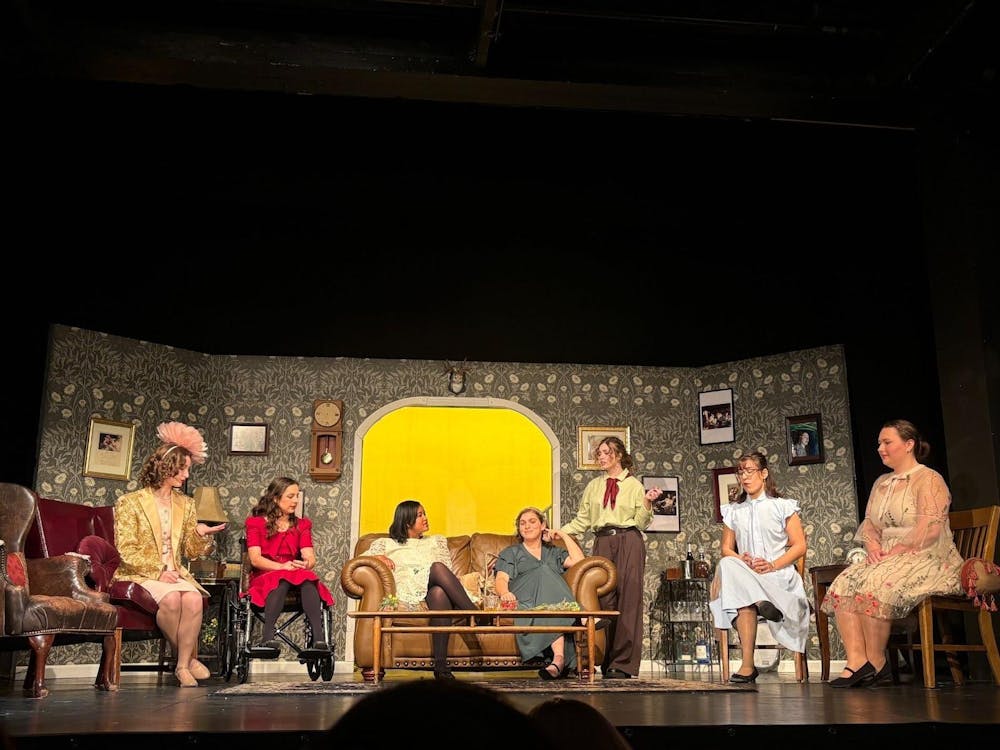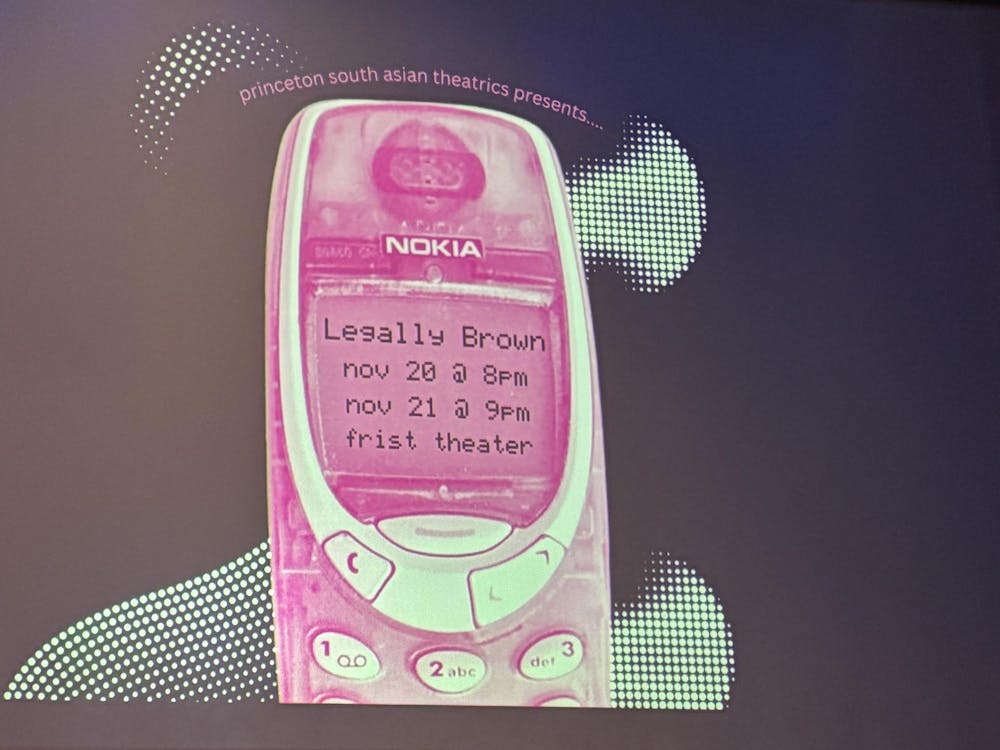William Shakespeare wrote “Henry V,” the last of four plays about the kings of England from Richard II to Henry V,during a time of tension between England and Spain as well as Ireland. As such, “Henry V” is one part historical documentary and one part contemporary propaganda, celebrating the king’s victory at the 1415 Battle of Agincourtduring the Hundred Years’ War. The Princeton Shakespeare Company presents a modern take on “Henry V” in the Class of 1970 Theatre in Whitman College, staying true to the original Shakespearean play, with a few modifications.
One of the first aspects of the performance that the audience will notice is the use ofcurrent clothing trends. King Henry wears amodern officer’s uniform, as do some of his relatives and the English nobility, while other soldiers wear camouflage fatigues. The male characters wear suits instead ofthe doublets more typical of Shakespeare’s time. While the play still takes place in 1415, the new take on the characters’ clothing by costume manager Kate Wadman ’16 adds an interesting twist.
Another change made to the play is using female actresses to perform traditionally male roles. For instance, the Welsh captain Fluellen is played by Savannah Marquardt ’16, a page boy is played by Arianna Lanz ’17 (substituted by Rachel Wilson ’16 during the showing upon which this review is based) and various noblemen are played by Julia Peiperl ’17. This is not just a case of women playing male characters: These gender adjustments are communicated through the use of female pronouns in the script, modified from the original. Considering that the majority of the characters in this play are involved somehow in the English military expedition to France, PSC’s modification once again emphasizes the modern overtones of its performance. In this case, the changes made are smooth and do not interfere with the broader messages and plot points of the play.
“Henry V” is the pinnacle of the development of Henry’s character. Contemporary Shakespearean audiences were familiar with the characterization of Henry V as an impetuous, immature youth in the preceding plays “Henry IV, Part 1” and “Henry IV, Part 2.” In contrast, “Henry V” shows the maturation of Henry V into a just and capable general and king. One notable instance is his discovery and subsequent order for the capital punishment of three traitors who had plotted to overthrow him. In addition, the night before the climactic Battle of Agincourt, he wanders the English camps disguised as a rank-and-file soldier tolearn his men’s opinions of him. These actions herald Henry’s emergence as a strong and meticulous ruler.
However, it is Henry’s St. Crispin’s Day Speech just before the battle that completes his transformation. Westmoreland, an English nobleman, expresses his concern that the French greatly outnumber the English, and he wishes they had brought more reinforcements.King Henry V refutes Westmoreland by describing theways that they will commemorate thebrave feats of the English soldiers.Ranking among the most stirring of pre-battle speeches in literature, this speech sees Henry rousing his comrades, “We few, we happy few, we band of brothers,” to fight with honor and to prevail with glory. As Henry V, Lagan Trieschmann ’15 (who appeared as Victor Frankenstein’s father in Theatre Intime’s “Frankenstein”) inspires his men to bravery, even persuading the previously hesitant Westmoreland to lead the vanguard. Trieschmann’s delivery of the St. Crispin’s Day Speech is fantastic, transporting his audience to the English camps at Agincourt, as the audience feels the soldiers’ emotions grow from trepidation to confidence and courage as Trieschmann speaks.
Typical of Elizabethan plays, “Henry V”has no scenery, and PSC’s version uses a minimalist set consisting of a table and chairs. The visual background is verbally painted by the Chorus (Kathleen Newman ’15), who speaks directly to the audience and encourages the use of imagination to fill in the blanks. However, the use of space was problematic. The Class of 1970 Theatre in Whitman College offers a small stage, and during some scenes of the play the actors were too closely packed together or got in the way of the audience, obstructing the view of the action. The performance would have benefited from a larger stage.
Overall, PSC’s performance of Shakespeare’s “Henry V,” directed by David Cruikshank ’16, is a success. Although it is less dramatic than most other plays, especially during its first half, this play’s entertainment value comes from the character development of King Henry V and the excellent speeches. PSC has prevailed with its modern retelling of this classic historical drama.
4 out of 5 paws

Pros: St. Crispin’s Day Speech delivered by Trieschmann.
Cons: Less than ideal use of stage space.








